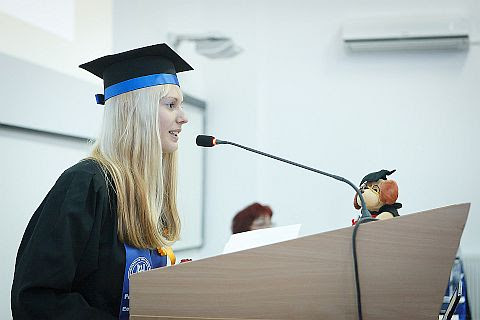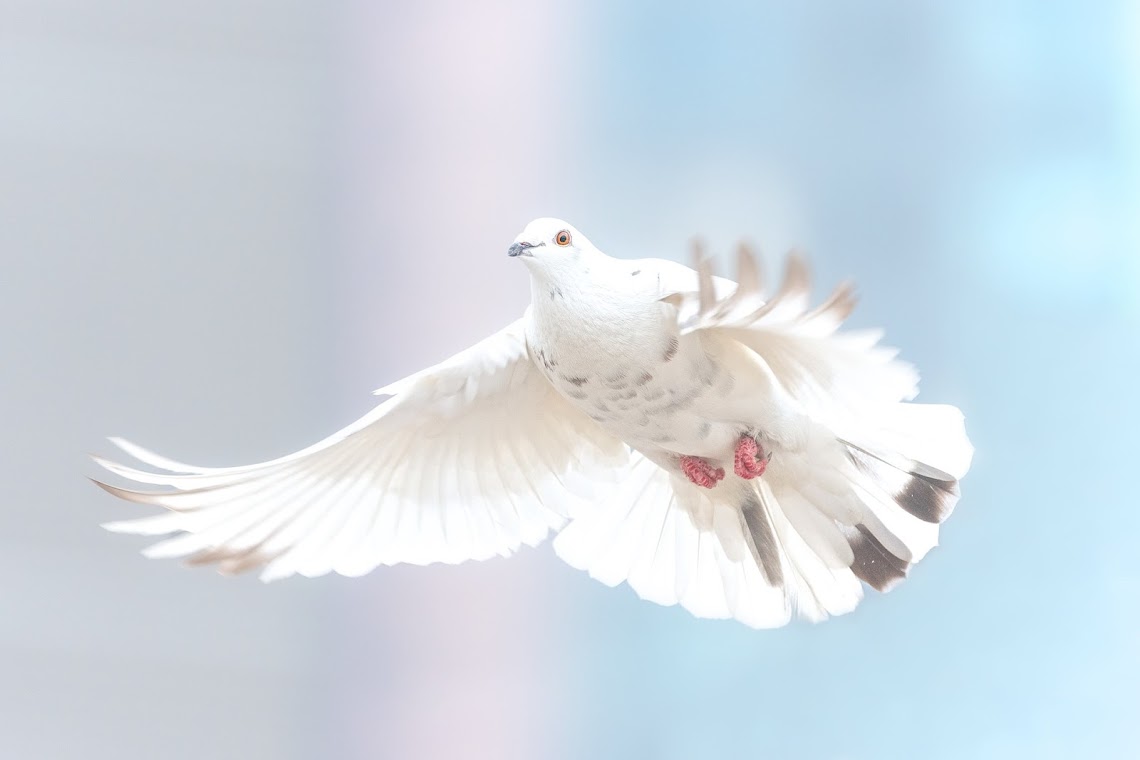(Stockholm, 23 May 2022) World leaders are failing to prepare for a new era of complex and often unpredictable risks to peace as profound environmental and security crises converge and intensify, according to a major report by the Stockholm International Peace Research Institute (SIPRI). The report, Environment of Peace: Security in a New Era of Risk, offers policymakers principles and recommendations for navigating this volatile future. It will be launched today in a special session before the opening of the ninth Stockholm Forum on Peace and Development.
Download the Environment of Peace report.
Join the briefing event for the report (12.00–12.45 CEST).
Environment of Peace provides the most comprehensive account to date of how different aspects of environmental crisis—including climate change, mass extinctions and resource scarcity—are interacting with today’s darkening security horizon and other phenomena such as the fallout of the Covid-19 pandemic. It also offers governments and other decision-making bodies recommendations for action, and principles to guide them.
‘Our new report for policymakers goes beyond simply showing that environmental change can increase risks to peace and security. That’s established,’ said SIPRI Director and Environment of Peace author Dan Smith. ‘What our research reveals is the complexity and breadth of that relationship, the many forms it can take. And most of all, we show what can be done about it; how we can deliver peace and security in a new era of risk.’
More than 30 researchers from SIPRI and other institutions contributed to the Environment of Peace report, guided by a panel of international experts on environment and security led by Margot Wallström, the former Swedish Foreign Minister and European Commissioner for the Environment.
Twin crises, complex risks
The report paints a vivid picture of the escalating security crisis. For example, it notes that between 2010 and 2020 the number of state-based armed conflicts roughly doubled (to 56), as did the number of conflict deaths. The number of refugees and other forcibly displaced people also doubled, to 82.4 million. In 2020 the number of operationally deployed nuclear warheads increased after years of reductions, and in 2021 military spending surpassed $2 trillion for the first time ever.
Regarding the environmental crisis, around a quarter of all species are at risk of extinction, pollinating insects are in rapid decline and soil quality is falling, while exploitation of natural resources such as forests and fish continues at unsustainable levels. Climate change is making extreme weather events such as storms and heatwaves more common and more intense, reducing the yield of major food crops and increasing the risk of large-scale harvest failures.
The report illustrates some of the complex ways that these two crises are starting to interact around the world; for example:
- In Somalia, where prolonged drought and other climate change impacts, combined with poverty, lack of preparedness and weak government, have driven people into the arms of the extremist group al-Shabab.
- Across the Sahel, where drought and the expansion of farmland to feed a growing population are pushing farmers and nomadic herders into competition over access to resources such as land and water, and this competition often turns violent.
- In Central America, where the impact of climate change on crops combined with violence and corruption increased the number of people attempting to migrate to the securitized US border.
- In the Middle East and North Africa, where in the early 2010s, failure of the Russian grain harvest due to a climate change-linked heatwave combined with the impacts of a US biofuels policy to raise the price of bread, exacerbating tensions that led to the Arab Spring series of uprisings across the Middle East and North Africa.
‘These examples show clearly that it’s much more complex than environmental degradation leading to conflict,’ said Environment of Peace expert panellist Chibeze Ezekiel, Coordinator of the Strategic Youth Network for Development in Ghana. ‘At the start of the Arab Spring in 2011, a climate change impact in one continent and a well-intentioned renewable energy policy in another combined with existing unrest in a third to increase the risks of conflict—nobody had seen that combination coming.’
Principles for policy
The report sets out five principles to guide policymakers in addressing these issues:
1 Think fast, think ahead, act now. Establishing an environment of peace requires a far-sighted vision, but also swift, short-term action.
2 Cooperate to survive and thrive. The new era of risk demands a new mode of cooperation to address common threats.
3 Expect the unexpected—be prepared to adapt. Continuous horizon scanning, far-sighted analysis and adaptive implementation are needed to keep ahead of unpredictably changing risks.
4 Only a just and peaceful transition will succeed. In making the transition to environmentally sustainable societies, we must avoid creating new risks to peace.
5 By everyone, for everyone. Decision-making processes from the United Nations down to community projects should include the people most affected.
Cooperation is the new realism
The last decade has been marked by increasingly tense geopolitics, with disputes simmering and sometimes erupting between major states and blocs, and populism on the rise. The report argues that cooperation is essential for managing the environmental and security crises, along with the risks they create.
‘No government can secure the well-being of its citizens against the escalating global crises without international cooperation,’ said Helen Clark, the former Prime Minister of New Zealand and a member of the Environment of Peace advisory panel. ‘We must urgently find ways to cooperate on addressing common environment-related security threats, even in today’s toxic geopolitical landscape. Against global threats, cooperation is self-interest. In fact, cooperation is the new realism.’
Pandemic highlights need to expect the unexpected
The Covid-19 pandemic has highlighted the gains countries make by preparing for an event whose potential for devastation is clear even if its timing and nature may not be.
For example, by applying lessons from the 2002 SARS outbreak, South Korea managed to keep its Covid-19 mortality rate down to around 10 per cent of that of countries with comparable populations in the first two years of the pandemic. This not only saved lives but also allowed South Korea to avoid much of the destabilizing economic and social impact felt in other countries that chose not to prepare despite regular warnings of pandemic risks from bodies such as the World Health Organization.
‘The pandemic shows us clearly the risks we run when we choose not to prepare,’ said Margot Wallström. ‘As the environmental and security crises get worse, governments need to assess what risks lie ahead, to develop the capacity to deal with them, and to make societies more resilient. The poorest countries will need international support to do this, and they should receive it.’
Environment of Peace recommends that environmental stressors should be included in early-warning systems for conflict risk, and urges that treaties on sharing resources such as fisheries, water and forests should be updated to make them fit for purpose in this new era of complex risks.
Only a just and peaceful transition will succeed
To tackle climate change and the wider environmental crisis, governments around the world need to bring about major transitions in areas such as energy and land use. Keeping global warming to the Paris Agreement 1.5C target means reaching net zero carbon emissions globally within three decades. In the area of biodiversity, governments are discussing initiatives such as 30x30—protecting 30 per cent of land and ocean area by 2030.
Environment of Peace argues that these transitions have to succeed because of the immense security risks that would result from failure. However, change at the scale and pace needed is unavoidably fraught with risk. The history of measures such as biofuels and hydropower dams shows that they can exacerbate insecurity, with hydropower alone having displaced an estimated 80 million people from their homes.
‘We must learn from the mistakes of the past so we do not repeat them on a much larger scale,’ said Geoff Dabelko, one of the report’s lead authors and a professor at Ohio University’s Voinovich School of Leadership and Public Service. ‘Conservation needs to happen, but it cannot be coercive. A rapid zero-carbon transition is essential but it must be done fairly. Tackling the environmental crisis must go hand-in-hand with justice, equity and rights, building peace rather than undermining it.’
Fund peace, not risk
Currently, governments spend an estimated $5–7 trillion per year on activities that can harm the natural environment, such as subsidizing fossil fuels, destructive fishing and forest clearance. Governments have promised to phase out subsidies that promote fossil fuels, but they have routinely failed to deliver.
‘If governments want to secure peace in this new era of risk, they need to redirect their financing away from activities that undermine it,’ said Environment of Peace expert panellist Arunabha Ghosh of the Council on Energy, Environment and Water (CEEW). ‘Funding conflict risk is in no-one’s interest. But many governments continue to fund non-essential and ill-targeted fossil fuel development and other environmentally destructive activities, which neither serve the interests of sustainability nor protect vulnerable communities. We need a wholesale redirection of investment towards peace, environmental stability and resilience.’
Environment of Peace cites many examples of initiatives that are building peace and environmental integrity together, which could be scaled up and adapted. It shows that to be effective, solutions need to be inclusive, with sectors of society that are often marginalized (such as Indigenous Peoples, women and youth) included in decision-making processes and sharing the benefits.
‘The challenges are immense and the timescale tight,’ said Dan Smith. ‘Even as governments deal with acute situations such as the invasion of Ukraine or the Covid-19 pandemic, they cannot lose sight of the profound challenges that lie ahead.’
For editors
Environment of Peace: Security in a New Era of Risk is published by the Stockholm International Peace Research Institute. It is a summary for policymakers of a longer report to be published later this year. Summaries of case studies described in the report and original graphics are available on request.
Black, R., Busby, J., Dabelko, G. D., de Coning, C., Maalim, H., McAllister, C., Ndiloseh, M., Smith, D., Alvarado, J., Barnhoorn, A., Bell, N., Bell-Moran, D., Broek, E., Eberlein, A., Eklöw, K., Faller, J., Gadnert, A., Hegazi, F., Kim, K., Krampe, F., Michel, D., Pattison, C., Ray, C., Remling, E., Salas Alfaro, E., Smith, E. and Staudenmann, J., Environment of Peace: Security in a New Era of Risk (SIPRI: Stockholm, 2022), <https://doi.org/10.55163/LCLS7037>.
Explore the dedicated website for the report at www.environmentofpeace.org.
Media contacts
For information and interview requests contact Alexandra Manolache, SIPRI Media and Communications Officer (alexandra.manolache@sipri.org, +46 766 286 133), or Stephanie Blenckner, SIPRI Communications Director (blenckner@sipri.org, +46 8 655 97 47).










Keine Kommentare:
Kommentar veröffentlichen